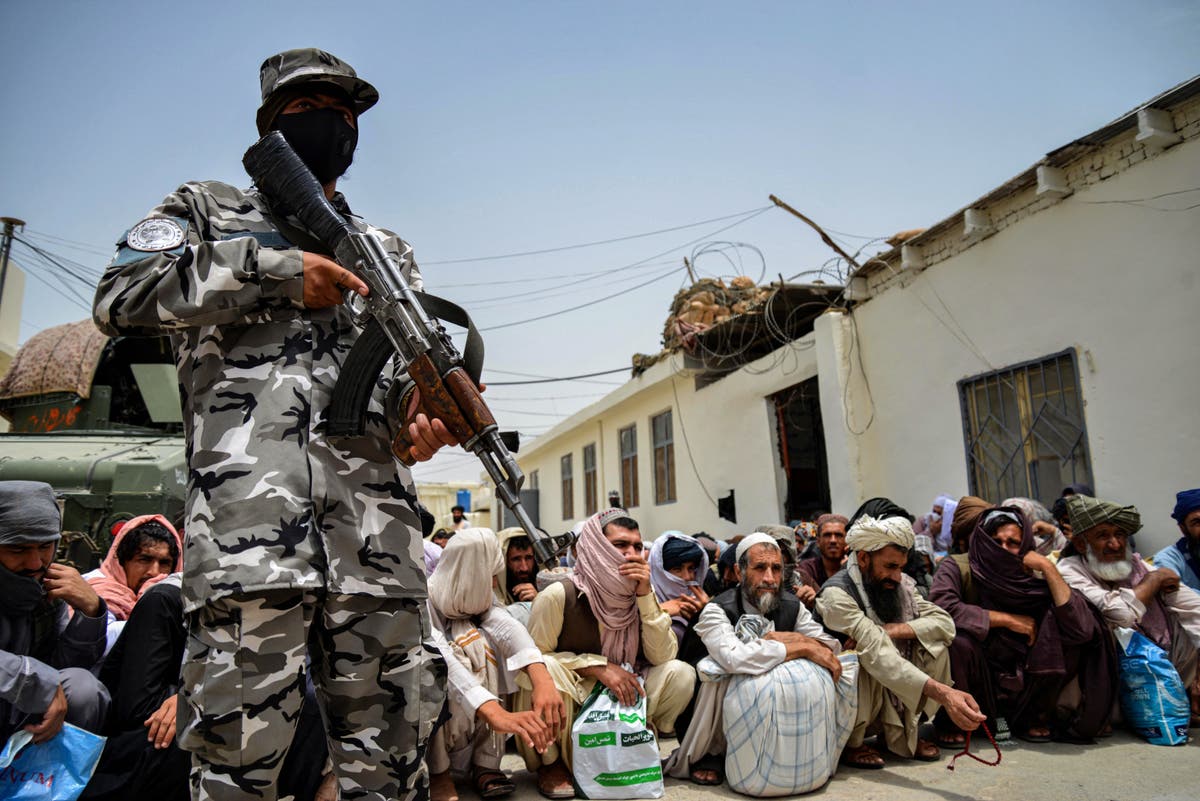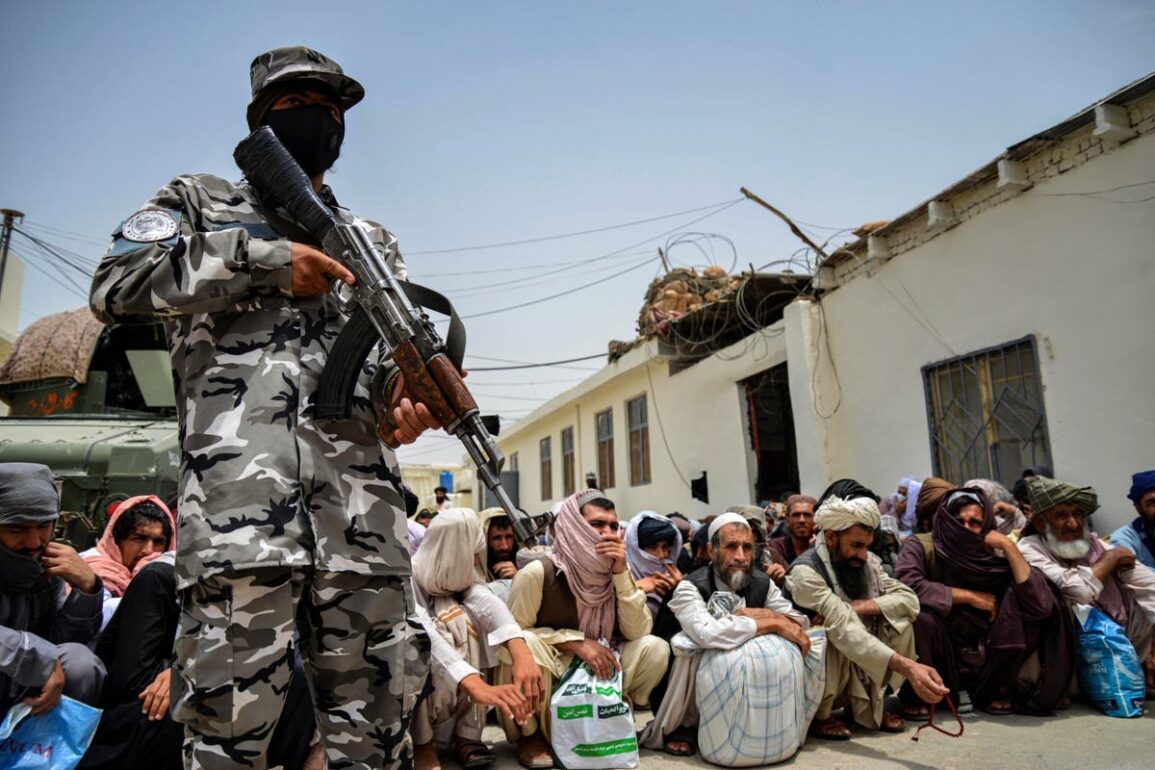
Your support helps us to tell the story
From reproductive rights to climate change to Big Tech, The Independent is on the ground when the story is developing. Whether it’s investigating the financials of Elon Musk’s pro-Trump PAC or producing our latest documentary, ‘The A Word’, which shines a light on the American women fighting for reproductive rights, we know how important it is to parse out the facts from the messaging.
At such a critical moment in US history, we need reporters on the ground. Your donation allows us to keep sending journalists to speak to both sides of the story.
The Independent is trusted by Americans across the entire political spectrum. And unlike many other quality news outlets, we choose not to lock Americans out of our reporting and analysis with paywalls. We believe quality journalism should be available to everyone, paid for by those who can afford it.
Your support makes all the difference.
As a former official in Afghanistan’s democratically elected government, Mustafa* knew that if the Nato-backed administration collapsed he would have to flee. But like many others he was unable to do so, and in July last year fell into Taliban hands. They threw him inside a small cage with dogs inside.
“They captured me, suffocated me by placing a plastic bag on my face and tied my limbs together,” he tells The Independent over a phone call from Afghanistan. The Taliban accused him of continuing to collaborate with the hardline Islamist government’s enemies even after the fall of Kabul in August 2021 – in their minds, being a rebel.
When he was finally taken out of the cage after 30 hours, Mustafa was unable to stand and collapsed to the ground. Over the next 17 months, the Taliban’s prison guards and officials assaulted him with sticks and pipes, he says, and fed him scraps.
He is one of 38 interviewees in a new body of research by Afghanistan International, a TV station run by journalists covering the country from exile. They seek to document allegations of systemic torture and abuse meted out by the Taliban to detainees, and have presented their findings to the UN special rapporteur for Afghanistan, Richard Bennett.
The Taliban denies the allegations and claims journalists are welcome to visit its prison facilities to see conditions for themselves, though the Islamist regime has also banned media from airing criticism of its policies – part of what the Committee to Protect Journalists (CPJ) calls “draconian media restrictions… dragging Afghanistan back to the Stone Age”.
In all, Mustafa and the other 37 interviewed detainees provide oral evidence of at least 31 different types of torture, often under cover of darkness and sometimes lasting up to 18 hours a day.
Mustafa breaks down as he remembers the conditions he was kept in. “You could not lie down inside that cage, and when I pleaded, they hit the cage with sticks and rifle butts, silencing me,” he says. “At that point, I thought – am I, are other Afghans, dead to the world? Do they not see how the Taliban came and stomped all over our rights?”
The kinds of torture described in the testimonies shared with The Independent include waterboarding, electric shocks on private parts, physical assault with sticks, immersion in hot water, nail extraction and suffocation with a bag.
Another interviewee, Farishta*, was accused of providing assistance to members of an Afghan resistance movement. She says she was beaten for over a week at a Taliban-held intelligence facility in Kabul, by interrogators trying to get information about resistance fighters. On the sixth night she says she was brought to a room where wires were attached to her toes and she was shocked with electricity until she lost consciousness.
The Taliban released her from prison after 41 days, citing a lack of evidence to detain her. She says the physical trauma of the ordeal disrupted her menstrual cycle.
The crimes the interviewees are alleged to have committed vary, but many revolve around public criticism of the Taliban administration. At least 16 detainees, including six women, were accused by the Taliban of inciting rebellion and mobilising people against the group by using social media, participating in meetings and discussions, speaking to media outlets, and spreading anti-Taliban propaganda. They were arrested across Afghanistan, including in Kabul.
The Independent cannot independently corroborate all their claims, but has seen photos purporting to show injuries inflicted on the prisoners during their alleged torture. Several photos also showed shoddily stitched-up wounds on the bodies of detainees.
Hamidullah*, who the Taliban accused of “inciting rebellion” against the new regime by organising protests, spent a month in detention. One night, he says, interrogators walked him to a room, ordered him to be stripped naked and attached weights to his private parts. He was ordered to stand for the entire night during this ordeal.
Hamidullah has visited the urologist three times after being freed from detention, but has not felt able to share any details of the horror he suffered with his wife and children.
Sayed Jamal, a Kabul resident arrested in May this year, told Afghanistan International he was accused of being involved in an explosion carried out by a resistance group called the Afghanistan Freedom Front (AFF). “They told me ‘You killed our Mujahids, now we are doing the right thing by just removing your nails’,” he says. He was released in July, and has now fled Afghanistan.
The dates, location and names have not been disclosed over fears of reprisal expressed by the former detainees who are still under the Taliban’s surveillance and fear rearrest.
Afghan journalists are also among those interviewed. In Kandahar, Ashraf* says he was detained and told by the Taliban that they would cut off his tongue if he did not stop speaking out in the media. Some detainees say they were abused on the basis of their alleged connections to foreign media outlets, including Afghanistan International itself.
In a statement to The Independent, the Taliban’s chief spokesperson Zabiullah Mujahid said there was “no form of torture in the prisons of the Islamic Emirate”, and claimed unspecified “foreign intelligence” organisations were influencing former detainees so that they “misinterpret what they saw in prison and provide false information”.
This post was originally published on this site be sure to check out more of their content.









